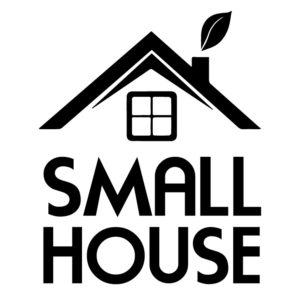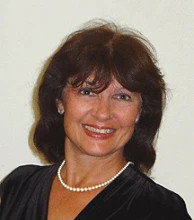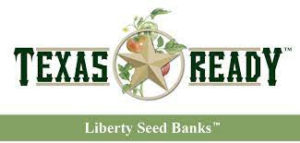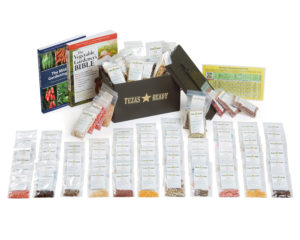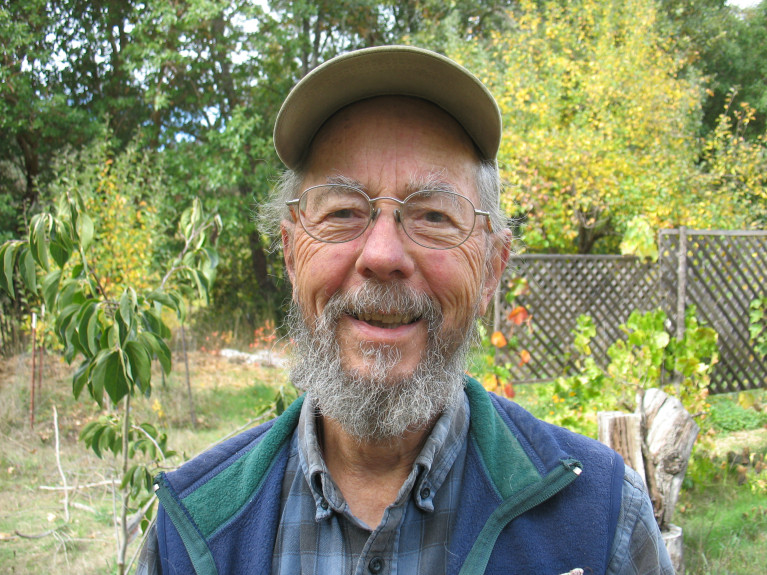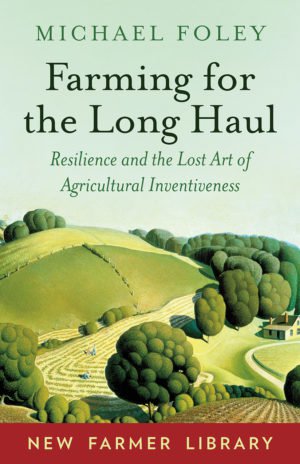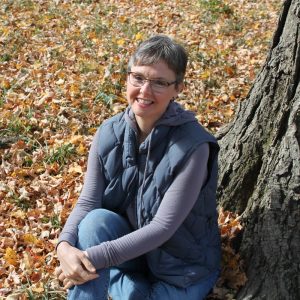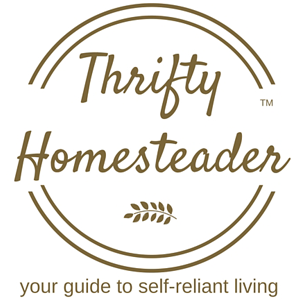Podcast: Play in new window | Download
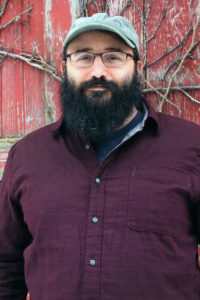
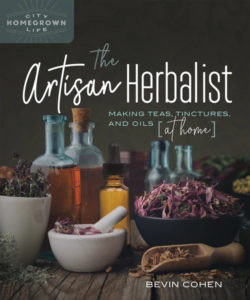
Bevin Cohen is an author, herbalist, seed saver and owner of Small House Farm in Michigan.
Join us as we discuss topics like –
* why homesteading is a life long obsession
* The joy Bevin gets from sharing his knowledge with others
*Bevin’s latest book The Artisan Herbalist
Grab a copy of his latest book & other fine products today – SmallHouseFarm.com
- 1:53 Small House Farm: We Believe in a Simple, Small, Intentional Life
- 2:48 What Brought Me Into Homesteading: A Life Long Obsession
- 4:03 From Music Festivals to the Beginning of Small House Farm
- 5:49 Educational Products to Help You Grow
- 7:09 Bevin’s Latest Book: The Artisan Herbalist
- 8:11 From Our Seeds & Their Keepers
- 9:11 Story Telling & Becoming an Author
- 12:28 How Book Writing & Speaking Opens Doors for You & Help Others at the Same Time
- 15:18 Teaching at Events like Mother Earth News Fair
- 17:43 Gardening & The Power of Curiosity
- 19:26 Small House Farms Top Sellers
-
-
- Herbal Wellness – Witch Hazel
- Seeds – Pineapple Ground Cherry’s
- Books – The Artisan Herbalist
- Workshop Classes – Seed Saving
-
-
- 21:29 The Joy of Meeting New People at Classes and Workshop Events
- 23:34 New Book Coming Out in February 2021 with New Society Publishers
-
-
-
-
- The Complete Guide to Seed & Nut Oils
-
-
-
-
- 25:45 The Secret to Success: Have Fun!
- 27:15 Where to Contact Bevin and pickup his latest book, The Artisan Herbalist
Transcription
Bevin: I think that with everything in life as business owners or wherever we’re at when we put ourselves out there, challenge ourselves to try something new.
And it’s just that little bit of success can boost that confidence enough to be like, Okay, let’s try that again. Let’s push forward on this, let’s see where we can take this thing. Even if it doesn’t turn out we’ve tried something new, right and we’ve grown as a person because of that.
But nine times out of 10 it is gonna work out and that’s the beauty of pushing your limits, is we can find that we’re capable of so much more than we give ourselves credit.
Podcast Intro: If you’re someone who refuses to go along to get along, if you question whether the status quo was good enough for you and your family.
If you want to leave this world better off than you found it and you consider independence a sacred thing.
You may be a prepper, a gardener, a homesteader, a survivalist, or a farmer or rancher, an environmentalist or a rugged outdoorsman.
We are here to celebrate you whether you’re looking to improve your maverick business or to find out more about the latest products and services available to the weekend rebel.
From selling chicken eggs online, to building up your food storage or collecting handmade soap.This show is for those who choose the road less traveled the road to self-reliance for those that are living a daring adventure, life off the grid.
Brian: Bevan Cohen is an author, herbalist, seed saver, and owner of Small House Farm in Michigan. He offers workshops and lectures nationwide on the benefits of living closer to the land through seeds, herbs, and locally grown food.
Bevin is a freelance writer and videographer whose work has appeared in numerous publications including Mother Earth News, Hobby Farms, Grit magazine, and the Baker Creek Heirloom Seed Company catalog.
He’s the author of, Saving Our Seeds, and The Artisan Herbalist.
You can learn more about Bevin’s work at www.SmallHouseFarm.com
Bevin Cohen, welcome to The Off-the-Grid Biz Podcast.
Bevin: Thanks so much for having me.
Brian: Great having you here.
Can you give us a little bit more about what it is that you do and how you got to this point in your life?
Bevin: Sure.
So my wife and I own a small homestead business we call Small House Farm, which is more based on the philosophy of living as opposed to the size of our building really, you know, a small house, we believe in simple, small, intentional life.
We grow a majority of our own food here we grow seed crops that we offer commercially. We’ve grown forage a number of herbs that we then craft into a full line of beauty, wellness, and cosmetic products that we also offer via our website.
In my spare time, I guess, I split wood to keep the house warm in the winter, and I do a lot of writing. We’ve published four books in the past four years, and we’ve got another one coming down the pipe and a little bit as well.
So I just like to stay busy. I don’t do well, just sitting around. We’ve always got something exciting going on here at Small House Farm.
Brian: What brought you into this lifestyle of homesteading and then beyond that, actually building a business out of it and teaching people and everything else?
Bevin: Well, you know, how does anybody get anywhere really, I found that the best thing I could do with my life is just getting out of my own way. I’ve been fascinated with plants ever since I was a little boy. I lived with my grandmother in an apartment on the edge of town and we were lucky enough to be right up against what was at the time, hundreds of acres of woods.
Now it’s been developed into housing and that sort of thing. But back then it was endless woods where young guys, we could just run out there and just play all day long.
So I started with this early age, spending so much time out in the woods, learning about the plants around me. And it became a lifelong obsession, that’s really kind of snowballed out of control, very organically, small houses came to me, what we offer commercially is just simply the way that we live.
We decided to share that with the people around us and people really responded well to it. We started offering some educational programs, the co-op in town, health and wellness store not far from here.
People really took to what we were offering and it just kind of took on a life of its own.
Somehow, here we are and the rest is history, I suppose.
Brian: Yeah.
Had you ever owned any other type of business before or is this something that you jumped into naturally?
Bevin: Well, that’s kind of funny. What I could consider a lifetime ago, I used to organize a small Music Festival, very different than what I do now. But there were a lot of overlapping similarities.
We did what we could to give back to the community. All the funds that we would generate through this event, we always donated to a different charity, big brothers and big sisters was one of our big charities that we donated to.
We got to work with artists, creative types, we got to see people that live a slightly different lifestyle than that nine to five job, you know, artists and musicians and those types of folks, we’re kind of coming at the world from a different angle.
That was always inspirational to see that there’s so much more than this world has to offer that we may not realize if we’re just focused on that daily grind, whatever.
The world has everything that we need right at our fingertips, but we’re usually moving so fast that we don’t even have the opportunity to notice it.
Working at the festival with these artists, I came to realize that if I did slow down and look around me, everything I had was already waiting for me there. And that was in a way the impetus for Small House Farm, where we decided, we’d move out to the country, we bought this property. And we thought, let’s try to do something a little more intentional, a little more focused on ourselves and our family.
We have two children now, but at the time, you know, Elijah, my oldest, was just a little baby. And we thought, wouldn’t this just be nice to think about life in a much smaller scale than we had before?
And well, small house, I guess, here we are.
Brian: It’s fabulous.
How long has that journey been, when did you first move out there?
Bevin: I want to say that we’ve been on this property for we’re going on our eighth year.
Brian: Awesome. Wow, that’s great.
You started out as almost like an educational service you had started putting out there. How did that grow into the other pieces to where you have your product?
You have books or everything else, how did that come along?
Bevin: Well, the books were a natural step from the educational process.
The books that we offer, help people learn to do some of the things that we’re doing here out at the fire, you know, the artists an herbalist is going to teach folks how to grow and forage all these different herbs, and then craft them into this full line of love his products very similar to what you can buy from us, certainly.
But at the end of the day, I like to put myself out of business, I would like other folks to be learning how to do all these things on their own. That’s very important to me.
My other book, Saving Our Seeds is a guide to teach you how to grow and gather and collect seeds from 43 different species of crops.
While I do sell seeds from my farm, I think the world would be in a better place if folks just learn how to do these things on their own. So the writing was a natural segue from the teaching, offering the products, it’s just kind of a thing that we just do.
Because people love the things that we offer, we didn’t really mean to get into the business of selling herbal wellness products, that was never really my goal. It just became a thing where so many folks kept asking for it.
So we started going to the farmers market to offer it and there was such a demand for what we offered, we thought well until I can get everybody making their own, I suppose we could provide them with some quality products in the meantime.
Brian: It’s such a cool dichotomy there and how that all fits together.
I was looking through your latest book, Artisan Herbalist and how you lay it all out there you show exactly how a person couldn’t go about doing this themselves. And it’s really great that you can have the final product, or here’s a way for you to do it yourself, which is what you’re all about. It’s what you’re promoting with the homesteading lifestyle. So that’s fabulous.
Bevin: It is all about doing it yourself. There are so many challenges that we face when we decide to start taking these steps in this different lifestyle. And one of them that I find with people, it’s a very common challenge that people seem to have is a lack of time where everybody’s very, very busy.
So as we find the time to maybe alter our lifestyles, even just small baby steps here, they’re where we work to free up that time to learn to do these things on our own.
In the meantime, we still want to have these high-quality, natural products. And you know, Small House Farm kind of fills in that gap.
Brian: Fabulous.
Saving Our Seeds. That was your first book.
Bevin: No, that was my second book.
Brian: Okay, what was your first book?
Bevin: My first book is called, From Our Seeds and Their Keepers: A Collection of Stories. It was out of all the books, it’s actually my favorite just because it was so much fun to write.
It’s as the title says, it’s a collection of stories.
As I’ve traveled about the country, I’ve met gardeners and seed savers, homesteaders, and preppers all these amazing different people. And they all have these fascinating stories to share and these wonderful seeds that they’ve also shared with me.
All of these seeds have a story in them as well.
So I realized along the way, that while it’s fun to sit around and tell these stories, right snapping beans or having a beverage and sharing stories with each other is wonderful stuff. But there’s going to come a time where maybe these stories are forgotten.
Maybe we’re not going to be there to tell the story anymore and too heavy responsibility.
But I kind of picked that up and I said I need to start writing these things down. These stories need to be documented in some way. So we collected these seed stories, as well as the stories of the people that keep the seeds.
They tried to get them all into one place and that is what ended up becoming my first book.
Brian: Now was that on your own impetus that you stepped out to write a book or did someone push you into it or how’d that occur?
Bevin: Well, the story starts with a lady by the name of Sylvia, an older lady that I met down in Kentucky.
Sylvia had this corn story that she was telling me about how her family had grown this corn. The grandfather had grown this corn had been passed down through the generations and we’re trying to trace this history back and fires because I sitting there and talking on the phone and one of the conversations Sylvie says to me, Bevin, I’m so thankful that you’re interested in hearing the stories that I have to tell because my children have already heard them.
They don’t want to hear about it, other people aren’t as interested in corn as you are. I don’t have other people to tell this story to.
These stories that Sylvia was telling me, it was more than just the corn. She would talk about how her father would come home at night and work in the gardens or how they would take their harvest to the mill to have it turned into cornmeal. She started telling me stories about when she was a young girl, when she would get sick, how her mother would go out into the woods, to gather plants to make the medicine from this little corn seed.
So many things came out of this story.
And I realized that if I didn’t write down everything that Sylvia was saying, there was going to be a day that Sophia wasn’t going to be there to tell the story anymore.
That’s all I needed, I realized the significance of the moment that I was in and we started writing the book. It just really, like everything else kind of took on a life of its own. And it manifested itself into, I think it’s just a wonderful collection of tales, is still probably to this day my most popular book.
I just had a gentleman call me yesterday, a guy in San Diego, who had bought the book was fascinated with the stories and wanted to call me and talked about some squash, you know, so the story continues to move, we tell the story.
But then the story has continued to have more chapters added to it.
Brian: That’s beautiful because there are so many people that have those stories that they’re wanting to tell, they have something that they want to get out there.
We’ve got business owners that are listening that want to get down write their first book. Where did you go from there, did you self-publish it, did you find a publisher, how did that happen?
Bevin: The first book was self-published, we did that ourselves, we independently published it here at Small House Farm. And it was really, boy what a learning curve.
That was a whole other thing.
It’s one thing to write a book, it’s another thing to publish and market a book. Right?
That’s a whole different skill set. But you know, it was fun.
At the same time that it was challenging. It was really a process that I enjoyed participating in, I would recommend it to anybody, if you’ve got a story that you think is worth telling, write it down, because you believe in that story. Other people are gonna believe in it, too.
We self-published it, and we put it out there. And just because of the nature of what I do for work, I do a lot of traveling to teach about gardening all over the place, I was able to bring the book with me.
It worked out very well having that book by my side, as I travel, people were very interested.
But publishers kind of picked up that idea to so now the books that we’re putting together, like The Artisan Herbalist, New Society Publishers contacted us, and they wanted us to write this book.
You got to start small and everything grows, just like with any small business. That’s how it is, as long as you believe in what you’re doing and you continue to do that, good things will come from it.
Brian: How would you describe the benefits that you’ve gotten?
You’ve put out three books, obviously, there are benefits tied to it, how would you quantify that?
Bevin: Oh, in so many ways, it is just it opens the doors to new conversations with people. I’ve gotten to meet so many interesting folks that when I go somewhere to teach, I inevitably always learn every time I’m on the road, you know, so it’s really enriched every aspect of what I do.
Being able to take my ideas and find a way to put them into words that other people can appreciate, it’s helped me fine-tune my own thought processes.
What we do here at the farm, it’s really helped me to tweak our operation by understanding it a little bit more, knowing that I’m doing something that is helping other people improve what they’ve already got going on in their life.
That’s awesome. It’s empowering to know that I’m having an impact on other people, just like I mentioned, the gentleman that just called, he was so excited to talk to me, he was so inspired by the book, even just reading a couple of chapters of it, he got a hold of me says you’ve changed the way that I’m looking at things, you’ve changed my perspective on what we’re doing.
And that’s powerful stuff to know, the impact that we can have every time we interact with a customer or client, or anybody in the public. We’re planting seeds, if you will. And those seeds are going to grow into beautiful things.
Brian: That’s really great.
Commercial Break: Okay, let’s take a break from that conversation.
I wanted to bring up a question for you, during these crazy times, do you feel like your business is indestructible? Most people don’t?
And if not, the real question is why? And what can you do to make it as indestructible as possible?
Well, that’s the basis of my new book, nine ways to Amazon proof your business. Let me talk about what we discuss in the first chapter, determine focus. So one of the main ways that you can Amazon proof your business is by determining the focus of your business. And the real problem isn’t that you’re not doing enough, the real problem is, is that you may be doing too many things in too many places.
So one of the things I suggest is decide whether your focus is going to be acquisition, ascension, or monetization. And I go into the details of what that means in this chapter. It’s really the only three ways that you can grow your business. And if you just do that one step of determining focus, you can have a huge change in your entire business. But I also have eight other ways to Amazon proof your business, basically the idea of making it competition proof to even someone as big as amazon.com.
So if you’d like to get your hands on a free copy of my book, go to AmazonProofBook.com sign up and you will get a free copy and get the chance to purchase a physical copy of it for a special price. And now let’s get back to our show.
Brian: And you’ve connected with all these great organizations and magazines, publishers out there, Mother Earth News and so forth.
I saw that you’ve put classes on for them, and courses. That’s kind of how you were explaining how you started out doing that?
Was that a natural fit for you, have you always kind of consider yourself a teacher? Or was it just being in the music festival industry that you’re kind of outgoing and used to kind of showing people the way?
Bevin: Well, I think that’s what it is, at the music festival, I would go out and I’d like to introduce the bands and stuff. And you know, you go out on a stage and there are 5,000 people out there, you can’t have any stage fright, you get used to public speaking very quickly when you’re in that type of a situation.
I think it made me very comfortable getting in front of groups of people to talk right, I was able to overcome that very quickly. As far as the teaching goes, it just kind of fell into my lap, the first couple of opportunities that I had to go and teach something.
There’s a local community college not far from here. They had a small-scale urban farm program that they were offering. And they were hiring local farmers to come and teach small classes, they’d asked me to come and talk.
So I went to this thing, and I prepped for it, you know, I really prepared for this thing, I felt like I was a little in over my head on what I was doing going to this college to talk to these folks. So I really put a lot of effort into preparing this, you know, get this presentation ready.
I went there, and it was a smashing success. Everybody seemed to really respond well to and I had a lady come up to me. And she asked, Did you go to school to learn about teaching? Or you know, do you have a teaching background?
No, absolutely not. I’m a gardener, and I’m farming over here.
She says, well, the way that you presented the information, it was very well-spoken, very impressive, you’re a natural, you may have found your color.
And I thought oh, you know, that’s laying it out heavy lady, but I appreciate it.
But I thought, you know, it kind of gave me that boost of confidence that I needed to try it again. Let’s go out there and do this one more time. And I think that with everything in life, as business owners, or wherever we’re at when we put ourselves out there challenge ourselves to try something new. And it’s just that little bit of success can boost that confidence enough to be like, Okay, let’s try that, again. Let’s push forward on this, let’s see where we can take this thing.
Even if it doesn’t turn out, we’ve tried something new, right?
And we’ve grown as a person because of that.
But nine times out of 10 it is gonna work out. And that’s the beauty of pushing your limits is we can find that we’re capable of so much more than we give ourselves credit for.
Brian: Awesome.
Yeah, that’s really great.
Have you noticed characteristics or a certain mindset of people that get the most out of your books and courses and then people that become customers?
Are they newbies to the homesteading lifestyle, or have they people that have been around for a while?
Is there anything common within the people that you’ve met?
Bevin: I think you know, the commonality would be curiosity, people that are interested in trying something new. Some folks that I meet, certainly a great number of the people that I’ve met have been new gardeners, new seed savers, new to working with herbs, whatever it may be, and they’re excited about trying something new.
But I’ve worked with a lot of like, very experienced homesteaders very experienced folks in the industry that have come back and said, You’re coming at this with a different perspective, you’re approaching this subject from a different angle than what I’m used to. And I appreciate that because it helps us.
It’s so easy to fall into a bubble in our thinking. If we stay in the same group of people, and we keep doing the same things, it’s very easy to fall into a set pattern of doing stuff.
But when somebody can interject with this different perspective, this different point of view, helps us see what we’ve been doing in a different way.
So I’ve certainly had some old-school homesteaders that appreciate the angle that we approach them from. I would say that, since the pandemic has happened, that has blown the doors, on trying to choose the demographic for the folks that are in the home setting.
I mean, it seems to be anybody and everybody from all walks of life in some way or another even if their apartment, wants to grow something on their balcony. If they live in a city and they want to forage at the park, whatever it might be.
People from all walks of life are suddenly realizing that there’s a potential to this simpler lifestyle to come back to mother nature, that there’s something special in this moment that we’re in. It’s challenging is that maybe, certainly, it’s full of opportunities.
Brian: What would you say is the most popular service or course or product that you guys provide at Small House Farm, is there one that sticks out that people go bananas over the most?
Bevin: What we do is so diverse, we offer so many different things that it’s kind of hard to pick one so we’re going to break this answer down into subcategories and give us the best sellers in each category, right?
As far as say, the herbal wellness products that we offer via our website number one, hands down is the Witch Hazel that we make. We make a witch hazel, topical astringent from which has like a native shrub that grows out in the woods here that we gather and process from the bark.
And it is hands down the most popular product that we make. It’s unbelievable how people respond to that.
If we’re going to talk about the seeds that we sell this year, the number one selling seeds, for some reason are pineapple brown cherries.
And I can’t put my finger on why that is. It’s pretty common.
You can buy pineapple brown cherry’s from a number of seed sources. It’s not really unique that we offer it, but for some reason, and I mean, by a long shot, it’s the most popular scene that we’ve been selling this year.
It’s easy to grow. It’s very delicious.
I guess we have a nice photo of it on our website. I’m not sure what the appeal is, but boy, it’s really taken off. That one’s been really popular.
As far as books go, of course, The Artisan Herbalist is the number one seller it’s been moving like hotcakes. We’ve just been thrilled with how well-received is been.
We were Amazon’s number one bestseller for a while. But that’s selling new release when it came out. People have really been enjoying the book for sure.
As far as workshops that we offer. Seed saving has been a big one, you know, we do a number of seed saving workshops, people have really been coming back to if they’ve gardened in the past, they want to learn how to save seeds.
But even if they’re new to gardening, they realize the significance of learning how to save their own garden seeds. And that’s a class that I teach almost year-round, it seems like.
Brian: Overall, what would you say you like most about your business and your industry as a whole?
Bevin: I like meeting people, I like spending time with folks. I like to sit down and chat and everybody comes to conversation with them such a different place, different backgrounds, different histories, different religions, different politics, all these different things.
But when we come together, we’re not thinking about any of that we’re thinking about what we have in common, you know, and that’s pretty powerful stuff and I really do enjoy that.
And of everything that we do, that’s always the highlight is just all these wonderful people that I get to meet.
But also sometimes I’ll be out in the woods gathering plants. And I realized that, man, that’s my day at work right here is sitting out in the woods with my kids. And that’s pretty groovy too.
Brian: That’s awesome. On the other hand, if you can change one thing about your business or industry, what would it be?
Bevin: Yeah, that’s such a good question. And I don’t know if I have a good answer for you really, you know, I’ve tried to think about that.
One thing that I have the challenges us here at Small House Farm, is the seasons.
In the wintertime, it’s very difficult for us to do much of anything, because we’re not growing without harvesting. Sometimes travel can even be limited. But now, there’s something positive to be said about the natural cycle of the seasons. Even from a gardening standpoint, that cold, cold winter is really going to help keep the bug populations down the insect populations.
There are pluses to that as well, so I couldn’t choose that.
So I thought, well, what about the wacky weather that we have? That can be very challenging out here on the farm, when I’ve got all my ducks in a row here counting on the seed harvest to get me through and the gardens flooded?
That’s certainly a challenge too.
But at the same time, that’s kind of part of the fun of it all, are these unexpected challenges that we have to learn to overcome.
So if I could change one thing about my business, there’s nothing I would change. I have no answer for you Brian, I love it all.
Brian: That’s a great answer.
If we were to talk again, a year from now if we had you back on the show, what would you say would have had to have happened over the last 12 months for you to feel happy with your progress both professionally and personally?
Bevin: Well, I’ve got a new book coming out next year. This is, you’re gonna hear it here first folks, this is the worldwide announcement, I suppose.
I’ve got a new book coming out from New Society Publishers, February of 22.
The Complete Guide to Seed & Nut Oils.
It’s all about growing and forging seeds and nuts specifically for oil extraction. That’s another thing that we do at Small House Farm, we extract seed into oil, we use it as ingredients and our wellness products, as well as offer, you know, just the oil for culinary purposes as well.
And so for me to be super satisfied, 12 months from now, I want that book to come out as a smashing success. I want people to get their hands on it and really, really enjoy and make use of it. That’s the thing. It’s fun to read a book and enjoy it. But I want people to use these books to take this knowledge and make the world a better place.
Brian: What would you say are the obstacles standing in your way of getting there?
Bevin: Right now the greatest obstacle that I have is that most places have had to close down. And we don’t know if they’re going to be able to stay open. That’s kind of where I’m at, right?
So this is kind of a tricky place to even have an opinion in this world right now, what we want to say about how that works, but regardless, we all have different approaches to what we think the solution may be and we may not agree with each others solutions.
But we all have the same end goal. We all want the world to get back to where it once was, so we can all spend time together in person again, right?
But you asked me what my favorite thing about the business was, and my favorite thing is spending time with people. And for all of 2020, I wasn’t even allowed to, you know, we did a lot of virtual stuff and I guess that’s very nice.
We should be blessed that we have this opportunity to meet this virtual wonderland, certainly. But is that the stage during a meal with somebody and shake hands with people.
So for me, the greatest challenge that I have is the challenge that the whole world is facing, it’s possibly the greatest challenge that we’re all facing, as people, as business owners over we want to look at things. That is our greatest challenge, isn’t it?
Brian: Yeah, absolutely.
You’ve been on this journey for eight years on this particular half of it, this Small House Farm journey.
What advice would you have blanket advice out there for other business owners that want to take their passion and turn it into something that can make a difference, but it’s also sustainable?
Bevin: Yeah, to make sure you’re having fun, you know, and that might seem cliche, I suppose. But that’s what it is.
Obviously, you got to think about the bottom line and you got to think about marketing and you got to think about all these different things. And that certainly comes into play.
But none of that matters if you aren’t enjoying what you’re doing.
It’s all about pleasure, right?
We’re lucky if we get to hang out on this planet, 60, 70 years, that’s all you get, right? And then you’re done.
You want to enjoy it. You want to enjoy what you’re doing, if you believe in what you’re doing as a small business owner if you truly enjoy that, and maybe it’s not even considered work, even it is more challenging times.
That passion, that pleasure that you have, your customers will pick up on that. They’ll feed from that.
You’ll be able to bring that pleasure and translate into something that they’re going to want to exchange for Federal Reserve Notes, I suppose.
But at the end of the day, all that matters is that you enjoy what you’re doing and everyone else enjoys what they’re doing. We can find a way to kind of overlap that pleasure.
Brian: Fabulous. Yeah, that’s, that’s great. Thanks, Bevin.
I think you have a positive perspective but you also keep things nice and light. I really appreciate that. Is there anything I didn’t ask you that you’d like to answer?
Bevin: Where can people get a copy of my new book The Artisan Herbalist? h
Brian: There we go.
Bevin: And if anybody’s interested in that they can get copies via my website, SmallHouseFarm.com. It’s also available on Bookshop, Amazon and wherever books are sold.
Brian: Awesome. Also, where could listeners who are interested in everything else that you talked about, where can they find out more about you and Small House Farm?
Bevin: So the website definitely the central hub for all things Small House Farm, which is again, SmallHouseFarm.com.
But folks can also connect with us via our Instagram, or Facebook page, which is also Small House Farm on our YouTube channel. For folks that are visual learners, we have a YouTube channel, you can find also under Small House Farm, where you can spend time with us out in the gardens or foraging making maple syrup.
Any of the adventures that happen here at the homestead are going to find their way to YouTube. And that’s a great community for us to connect to that as well.
Brian: This has been a great talk I can’t wait to see more from you. I can’t wait to see this new book coming out and be able to look over your other stuff coming out.
Thanks so much for being on The Off-the-Grid Biz Podcast.
Bevin: Thank you so much for having me, what fun.
Brian’s Closing Thoughts: Bevin was a lot of fun to chat with. He has a lot of great ideas, and just his whole energy about him was just fun to be around and inspiring.
I think I’d say that the most about this conversation was very inspiring in terms of if you know you’re doing things right, if you can’t come up with a single thing that you’d like to change about your business, and the industry that you’re working in, it’s a good thing.
It just seems like he’s in a really great place and moving in a really great direction.
I want to point out something that you might be able to use in your business, two major things.
First thing, the teaching factor that Bevin has built into his business from the very beginning. It started out as a process of teaching and most of us don’t start businesses that way.
Most of us start businesses from a different direction and then we grow into a teaching factor. We eventually may write a book or we eventually may put on a course or speak at an event regarding what it is that we do and train other people how to do it.
But he went the other way around where he began teaching. And then that grew into a product source and a website and all these other things.
I think it’s a huge factor in how happy he’s been in building his business.
That comes to the second point.
What he mentioned at the very end about having a good time is so imperative to your business, because if you aren’t having a good time, nothing else seems to matter.
It’s not that it’s the most important thing, it is a factor that is necessary for doing the most important things in your business. If you want to get a message out there, if you want to get a product out, there is a service out there.
You have to be having fun in order to sustain that business growth had to handle the ups and the downs, the goods and the bads that come along with running a business.
Those factors, I think really make a big difference and it’s something we can all learn from.
Also looking at how he structured his books, and how he structures his courses and workshops that you could find online.
Be sure and check that out because I think everybody can learn a lot from Bevin Cohen.
I really appreciate having him on the show.
Outro: Join us again on the next Off The Grid Biz Podcast brought to you by the team at BrianJPombo.com, helping successful but overworked entrepreneurs, transform their companies into dream assets.
That’s BrianJPombo.com.
If you or someone you know would like to be a guest on The Off The Grid Biz Podcast, offthegridbiz.com/contact.
Those who appear on the show do not necessarily endorse my beliefs, suggestions, or advice or any of the services provided by our sponsor.
Our theme music is Cold Sun by Dell. Our executive producer and head researcher is Sean E Douglas.
I’m Brian Pombo and until next time, I wish you peace, freedom, and success.
